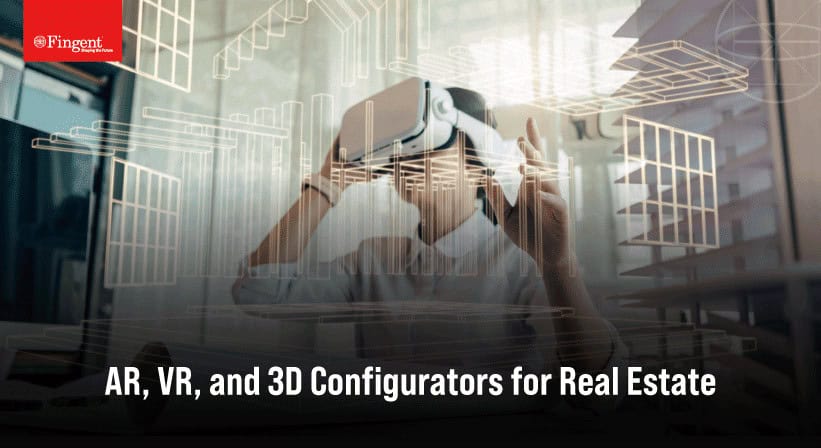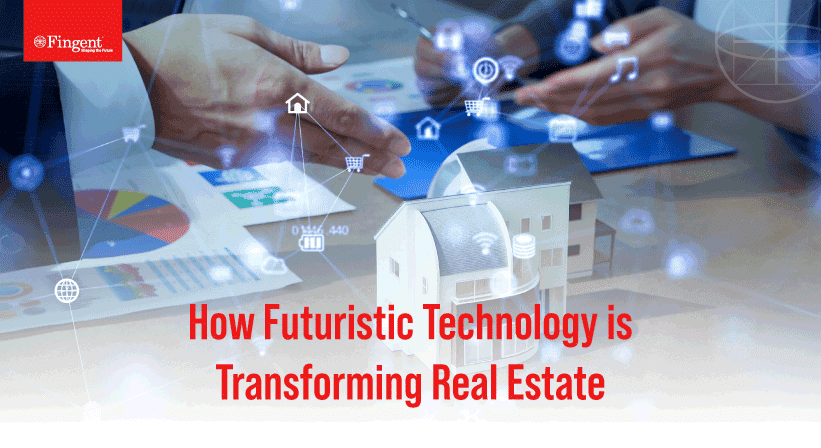How Virtual Reality Can Transform Your Real Estate Business
Why Implement Virtual Reality in your Real Estate Business
Virtual Reality is rapidly becoming a part of every modern business, and the real estate industry is not excluded from the list. In fact, VR technology opens up many innovative opportunities for real estate businesses to market their listings in a better way.
Generally, a real estate deal involves checking the listings, price negotiations, and an in-person visit to the property. This workflow is very robust and has always brought forth good results. However, it is very time-consuming for both the client and the realtor. Sometimes, visiting the property can be inconvenient for the homebuyers as well. This is where Virtual Reality tools can be a game-changer.
Related Reading: Augmented Reality & Virtual Reality: Transforming The Real Estate Industry
Virtual Tours
VR technology allows realtors to showcase the property to their clients as if they were there in the flesh. The client just has to put on a VR headset and experience an immersive three-dimensional tour of the property. Potential homebuyers can virtually visit multiple properties this way, even without having to leave their home once. This allows them to make an informed decision when buying or renting the property.
As for the real estate companies, employing VR tools allows them to expand their reach to more clients. As the internet is not confined to any physical boundaries or borders, realtors can offer their listings to global clients as well. This can be of great help to long-distance buyers as well as to those who are looking to migrate to a different country.
Realtors can also offer a 360-degree virtual tour of the property for clients who do not have access to a VR headset. Alternatively, they can create an interactive virtual tour, wherein the user can move from one place to another within the property by clicking on various hotspots. Both of the guided and interactive virtual tours can be easily included along with the property listing on the website.
Virtual Staging
Virtual Reality also allows realtors to add furniture and other essential items in the property so that it looks more appealing and cozy to the clients. Staging has been an integral part of the real estate business for years and is widely used when uploading photos of the property on the website. VR technology can make this more realistic.
Virtual staging is one of the best ways to market a newly built home or apartment. This can be done by creating 3D tours of the property with furniture and fixtures. That makes it very simple for the client to visualize how their future personal space will be. As this connects potential buyers to the property emotionally, it motivates them to make a quick decision.
Real estate businesses can also employ VR technology to boost the sales of under-construction properties using virtual staging. Realtors find it very difficult to market such properties because empty buildings and unfinished structures do not attract buyers at all. This gap can be efficiently filled using architectural 3D visualization and virtual staging tools.
Virtual Commerce
Virtual staging of the property has another benefit too. Apart from creating a premium and lasting impression on the potential buyers, it can also promote virtual commerce. Realtors can easily add a purchase option with any element when staging the property and creating the 3D tour. This allows the clients to customize the space as per their personal preferences.
For instance, real estate businesses can integrate an online store with the staged elements. This will give the clients the options to, say, change the style of the furniture or choose a different light fixture. This not only makes the virtual tour of the property more interactive but also allows customers to imagine how it will be when they move in.
Even if a client does not make any changes to the interior staging during the virtual tour of the property, there are still chances that they may find the items included in the 3D tour interesting and may buy them eventually when they buy or rent the property. This is always an added advantage for the realtor.
Related Reading: Tech Disruptors in the Real Estate Space
The Key Benefits of Employing VR Tools in Real Estate Business
The most striking advantage of incorporating Virtual Reality in real estate business is that it saves time for both the realtor and the client. It is much cost-effective than taking the client to check out multiple properties.
Besides, an immersive 3D virtual tour of all the properties listed on the website will be available round-the-clock to the clients, which means that they can virtually visit any property at any time. This allows realtors to work with more clients, which means more opportunities to sell a property.
Another great thing about VR technology is that it gives clients an instant sense of ownership. As they get the options to customize the space as per their liking during the virtual tour, checking out the different areas of the property quickly establishes a personal connection with the clients.
This can be very helpful in inspiring them to make a purchase or sign a rental agreement. It is also possible to add to the customer experience by including interactive tools in the virtual tour, such as mortgage calculators and neighborhood descriptions.
There is no arguing that Virtual Reality has already made an impact in the real estate industry. Most of the big names have adopted the technology for improving their reach, and soon, every real estate business will incorporate VR technology for better productivity.
If you would like to work with an expert to build your VR strategy, we can help. Contact us.
Stay up to date on what's new

Recommended Posts

24 Oct 2023 Retail B2B
Explore Innovative Business Possibilities with Smart Retail Technologies
Our digital era is a whirlwind of change, with technology driving transformation at breakneck speed. It's not just about adopting new gadgets; it's about recognizing technology's influence on consumer interactions.……

08 Jul 2023 B2B
AR, VR, and 3D Configurators for Real Estate
The implementation and development of immersive digital technologies such as Artificial Intelligence, Augmented Reality, Virtual Reality, Machine Learning, and 3D Configurators have drastically changed the way the world works. These……

23 Feb 2023 Real Estate B2B
Futuristic Technologies Transforming The Real Estate Industry!
According to a 2020 report, 58% of real estate brokers have a clearly defined digital strategy, a figure that represents a 6% increase from the two previous years and thus……

24 Oct 2022 B2B
Providing Seamless Customer Experience with Technology
Customer Experience – Two words that could make or break your business. Today, customers expect businesses to provide nothing short of an excellent customer experience whenever and however they shop.……
Featured Blogs
Stay up to date on
what's new













